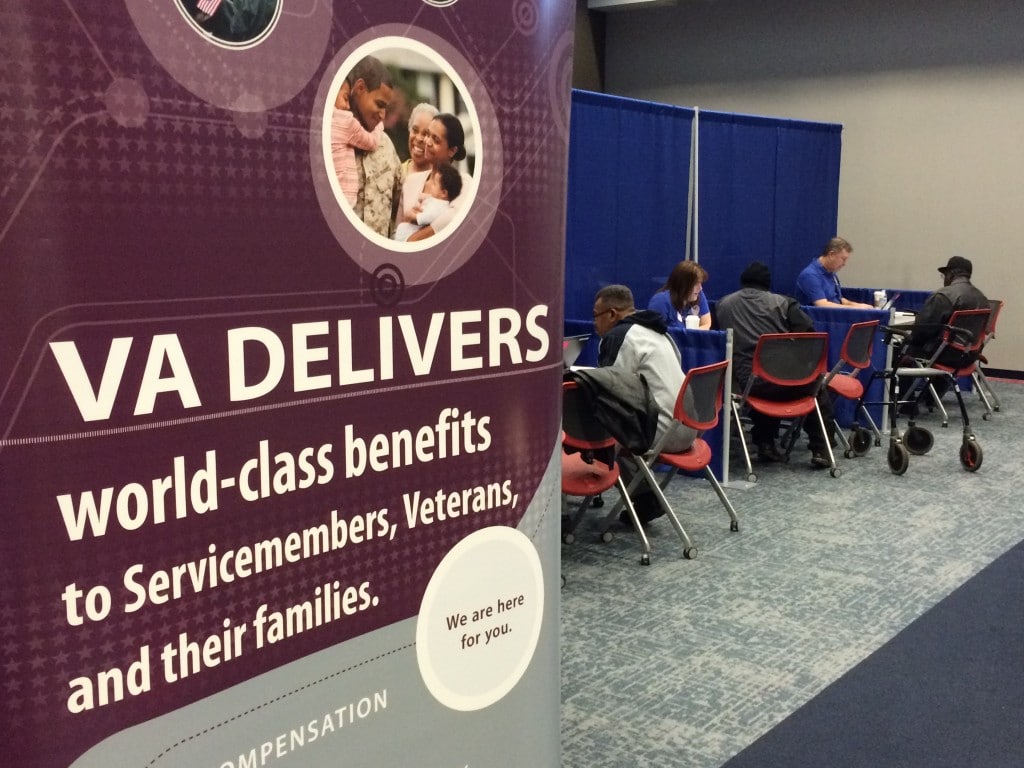by Ron Sykstus
Filing a VA disability claim can feel like a harrowing process. We have helped clients who are frustrated by the never-ending amount of paperwork to send off, appointments, and denied claim horror stories. However, there are ways for you to successfully file your claim and receive approval in a timelier manner.
Send an Intent to File a Claim Form
Many veterans try to send in their compensation disability claim forms (VA Form 21-526EZ) immediately without having all their evidence available. To give you some breathing room to contact doctors and to obtain service treatment records, complete the VA 21-0966 Intent to File a Claim form. This form will tell the Veterans Administration that you plan to file a disability claim, and it gives you one year to fully complete the application process. It also locks in that day as your “back pay” date. So, when your claim is approved, you will receive compensation all the way back to the date in which you sent the form.
Do not, however, miss the one year deadline to file your claim! In fact, NEVER miss any VA deadline or it will really hurt and even potentially destroy your claim!
Understand the VA Compensation Requirements
Take a moment to read about the VA disability compensation requirements. Veterans who are in a rush may miss reading about certain document requirements, as this problem lengthens the amount of time it takes to process your claim.
On average, the VA wait time may take up to 175 days due to gathering necessary documents on behalf of the veteran because the evidence was not included with the application. Fully understanding the requirements can ensure you have a smoother process.
Obtain a Current Medical Diagnosis and a Nexus
You can obtain your current medical diagnosis from either your private doctor or a VA physician. This examination establishes that you have developed a medical condition from service.
You should also obtain a nexus, which is the doctor’s confirmation that your diagnosis was due to an event that occurred while you were in service. Usually, he nexus is a part of your VA Compensation and Pension Exam that the Veterans Administration will schedule after filing your claim. However, you can get one beforehand so the VA will have all the information available the moment that they start reviewing your claim application.
Remember, to have a viable VA disability claim, you have to have a current disability which was cause or exacerbated by an event in service. Also, as every service member knows, you are on duty 24/7 so the event just had to have happened while you were on active-duty orders.
Get a Disability Benefits Questionnaire Completed
The Disability Benefits Questionnaire (DBQ) is a document completed by your regular physician and doesn’t require you to undergo any additional medical exam. The form is based on questions that you answer in order to capture more critical information in regards to your impairment level due to your disability. The form can be used to provide additional medical evidence regarding your disability. Keep in mind that the DBQ is usually not covered by your insurance, so you will have to pay out-of-pocket. Also, the DBQ may not be required for all medical conditions, such as PTSD or other mental health problems.
Completing Your VA Disability Claim Form
Now that you have all the documentation and medical records, you can send it along with your VA disability claim form. You can either mail in the form or complete it online through the DoD’s e-benefits website.
We recommend that you send the form by certified mail with the rest of your available documentation and to request a return receipt to ensure that the VA has received it. By doing so, you will have the receipt on file for your own records.
In addition, be sure to make copies of all of your documents before sending them in to the Veterans Administration in case there is a filing problem on their end. As a reminder, always make copies of everything you receive from the VA and everything you send to the VA. I promise you that it will come in handy several times during the life of your claim.
With all of your evidence made available with your application, the VA will only need to gather the necessary federal records. If there are any medical records that you were unable to obtain yourself, be sure to notify the in the disability claims application and let them know where they can obtain the additional evidence. This process can cut down on the phone calls between the VA and other medical professionals as the VA will know exactly where to find the information.
Above all, to have a successful claims process, make sure to file your disability claim application on time and attend any VA requested medical appointment! Missing your appointment or a deadline will result in the VA proclaiming your claim as final. Once this occurs, you will not be able to file an appeal if they deny your disability claim or if they only offer partial disability compensation when you believe that you deserve more.
Miscellaneous Tips
Finally, here are just a couple of tips that, in my experience, will really help improve a veteran’s claim.
If a veteran is seeing a current treating physician, we advise veterans to bring what military medical records they have to their physician and ask their doctor to put together a letter to the VA discussing the veteran’s current disability and, if the doctor can so opine, state that:
“based upon my knowledge of the veteran and, after examining the veteran and reviewing the veteran’s medical records, it is my opinion that the veteran’s current disability or disabilities of ______________________ is/are more likely than not caused by and related to his/her active-duty military service.”
Buddy Statements
If the VA denied a veteran’s claim stating that the disability was not service-connected, the best thing a veteran can do is to get “buddy statements.” These are statements from former military service colleagues who can write a statement saying why the current disability that a veteran has is related to his military service. For instance, if a veteran hurt himself on active duty, one or two of his close friends would most likely know about it and recall the incident.
These buddies may also recall the veteran complaining about a certain something that happened and they can write a supporting statement of what they recall. For instance, I have a lot of veterans who claim sleep apnea as a disability. By way of example, if the VA says it is not service-connected, get statements from your barracks and bunk mates that say you were struggling to breathe, snoring loudly, waking up a lot, gasping for breath, etc. In this day and age of Google and Facebook, it is easier than ever to locate two or three military friends who can recall the specific and usually traumatic event that caused the veterans disability. I cannot overstate the help that “buddy statements” will provide in proving service connection. Also, get as many “buddy statements” as you possibly can.
Always seek help if you are having problems with filing a VA disability claim. You can speak with attorneys, or get help through the Veterans Service Organization in your area. You don’t have to go through this process alone.
Attorney Ron Sykstus of Bond & Botes, P.C. handles all types of VA cases for veterans, from the initial submission of a Notice of Disagreement to a decision that a Veteran disagrees with, all the way through the appeal of a negative Board of Veterans Appeals decision, to the Court of Appeals for Veterans Claims. He is also the co-author of Navigating Legal Issues for Military Veterans.
All content herein is owned by author exclusively. Expressed opinions are NOT necessarily the views of VNR, authors, affiliates, advertisers, sponsors, partners, technicians, or VT Network. Some content may be satirical in nature.
All images within are full responsibility of the author and NOT VNR.
Read Full Policy Notice - Comment Policy






























